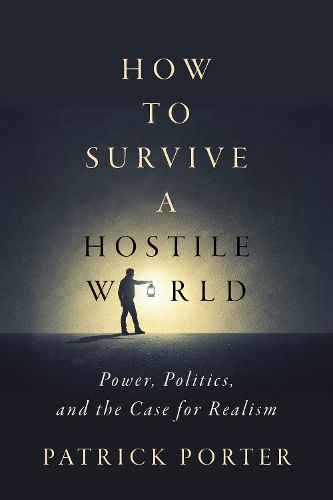Readings Newsletter
Become a Readings Member to make your shopping experience even easier.
Sign in or sign up for free!
You’re not far away from qualifying for FREE standard shipping within Australia
You’ve qualified for FREE standard shipping within Australia
The cart is loading…






The oldest ideas are the best. This book is a defense of an ancient way of thinking about international politics: realism. Patrick Porter, a scholar of international relations, defends the realist approach to understanding the world by addressing head-on the most robust critiques of the tradition. Drawing from a wide literature, Porter restages three prominent criticisms of realism: that it is immoral, unrealistic, and provincial. In erudite, clear, and at times morbidly funny prose, Porter makes the case that realism is, in fact, everything its critics believe it is not: moral in its commitment to securing the polity and its interests in a world where there is no higher government; realistic and the best starting point for explaining how human groups tend to behave; and practical for use by everyone, everywhere, including beyond the Euro-Atlantic.
From Thucydides to Kautilya to Machiavelli, realists claim that the world is an inherently dangerous place defined by the shadow of conflict, whether we like it or not. As the 21st century grapples with multiple interlocking crises concerning economic dislocation, climate crisis, and war, we need realism now more than ever. This book is for readers who are looking for sensible guidance on how to work within that reality and survive in an increasingly hostile world.
$9.00 standard shipping within Australia
FREE standard shipping within Australia for orders over $100.00
Express & International shipping calculated at checkout
The oldest ideas are the best. This book is a defense of an ancient way of thinking about international politics: realism. Patrick Porter, a scholar of international relations, defends the realist approach to understanding the world by addressing head-on the most robust critiques of the tradition. Drawing from a wide literature, Porter restages three prominent criticisms of realism: that it is immoral, unrealistic, and provincial. In erudite, clear, and at times morbidly funny prose, Porter makes the case that realism is, in fact, everything its critics believe it is not: moral in its commitment to securing the polity and its interests in a world where there is no higher government; realistic and the best starting point for explaining how human groups tend to behave; and practical for use by everyone, everywhere, including beyond the Euro-Atlantic.
From Thucydides to Kautilya to Machiavelli, realists claim that the world is an inherently dangerous place defined by the shadow of conflict, whether we like it or not. As the 21st century grapples with multiple interlocking crises concerning economic dislocation, climate crisis, and war, we need realism now more than ever. This book is for readers who are looking for sensible guidance on how to work within that reality and survive in an increasingly hostile world.